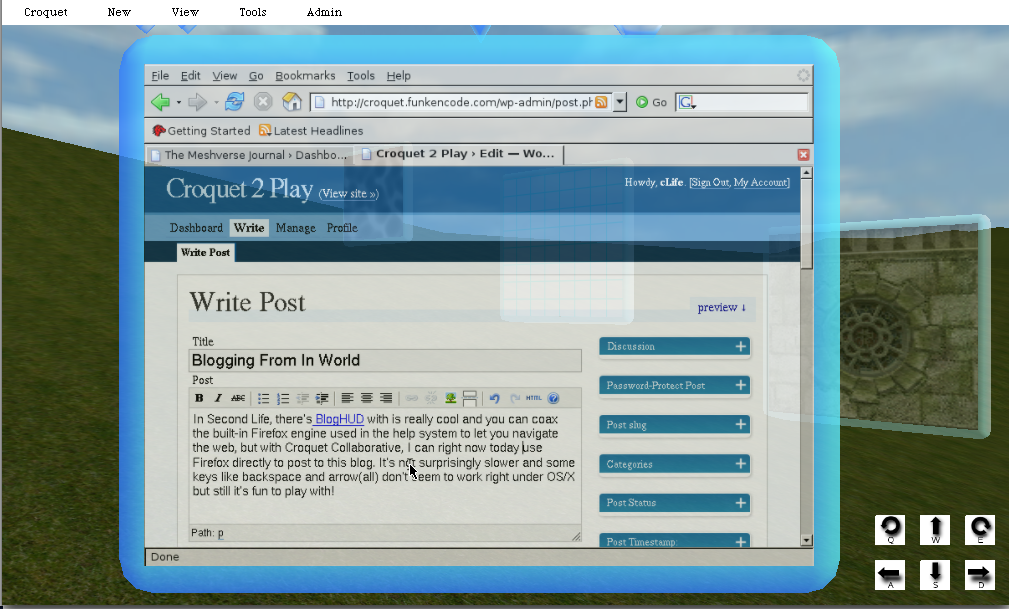I’ve been bumming about my postings (or lack) lately. I want to write about cool possibilities and what they might mean, but most of what I do can’t be talked about until it is released. It seems like it shouldn’t matter whether you write about what you’re doing versus what you’ve done, but I think it does. I feel like everything I write about the latest cool thing my colleagues or I did ends up sounding like an ad. Not an effective and entertaining thing, but just that it sounds like I’m trying to sell something.
Sorry about that. As far as I am aware, I write to sort out ideas. I was taught that if I can’t name something or talk about it effectively, then I don’t understand it. And I write to to document my journey. In both cases, I should be discussing work in progress. But even the entries I made while working at the University of Wisconsin all seem to be about actual working results, rather than projects that I was still designing. And I’m not sure why, but it feels like the out-of-sync aspect is getting worse. There is a commercial relevance. For example, way more than a year ago I had been very happy when a new reader told me what a delight it was to find my blog, and he offered some interesting comments. But it turns out that this fellow was from a ginormous company that is now a (hopefully) happy repeat customer. While I don’t clear anything I write with anyone at work, I can’t pretend that I am unaware of any potential commercial impact. Not sure what to about all that.




